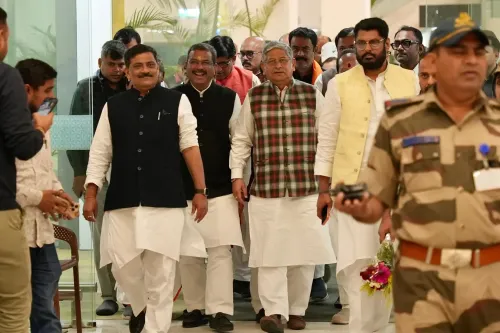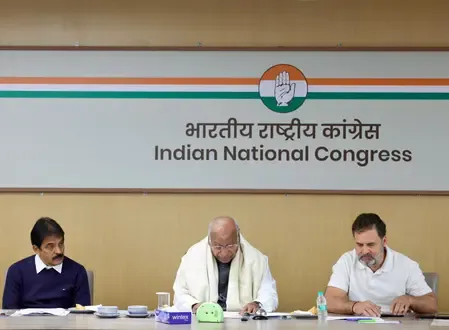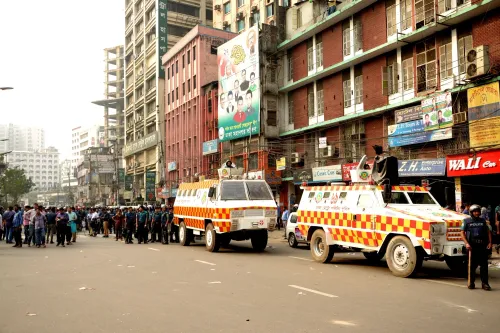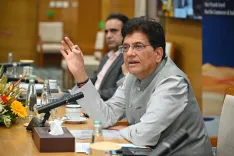How is Bangladesh Facing Internal Crises While Fueling Anti-India Sentiment?
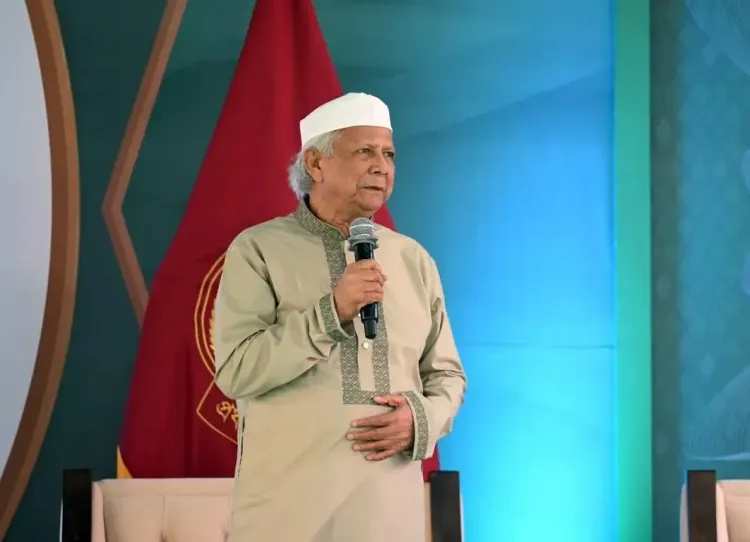
Synopsis
Key Takeaways
- July Uprising of 2024 marked a significant political shift in Bangladesh.
- Anti-Hasina forces now in power are leveraging anti-India sentiments.
- Bangladesh's relationship with India has deteriorated sharply.
- The interim government faces a serious law and order crisis.
- Ongoing violence may jeopardize the political landscape and upcoming elections.
Dhaka: The July Uprising of 2024 marked a pivotal change in Bangladesh's political arena, concluding Sheikh Hasina's 15-year rule. With the rise of anti-Hasina factions, the nation’s political dynamics shifted dramatically, transforming its foreign relations as long-standing ally India suddenly became perceived as an adversary.
Despite the existence of anti-India sentiments during Hasina's administration, largely fueled by radical Islamists and supporters of Pakistan, the relationship had improved notably in various sectors. These included cultural diplomacy, agreements on water and land sharing, and enhanced connectivity initiatives—such as ports, buses, and railways—that bolstered economic collaboration and strengthened border security through joint counter-terrorism endeavors.
During this period, Bangladesh's ties with Pakistan saw a slight thaw, especially as the International Crimes Tribunal sentenced war criminals, primarily from Jamaat-e-Islami who collaborated with the Pakistani Army during the 1971 Liberation War, to death and life imprisonment for their crimes.
Domestically, Hasina's strict measures against emerging terrorist groups from 2013 to 2017 intensified the radical Islamist backlash, leading to public calls against Bangladesh’s constitutional secularism, a principle upheld by her Awami League party. This environment fostered a narrative portraying Hasina as “selling” Bangladesh's democracy to India.
Following the January 2024 elections, where Hasina secured a significant victory, her political rivals escalated their anti-India rhetoric. They criticized New Delhi for congratulating Hasina amidst international concerns regarding the fairness of the elections, alleging Indian interference in Dhaka's internal matters. This ignited the 'India Out' campaign in Bangladesh, reminiscent of the earlier Maldivian movement in 2023. However, this campaign had minimal impact on bilateral relations and quickly lost popularity.
Post-Hasina, the interim government under Chief Advisor Muhammad Yunus shifted foreign policy, aligning more closely with Pakistan while keeping a frosty relationship with India. Yunus has made several inflammatory statements against New Delhi, including branding Bangladesh as the sole protector of the Bay of Bengal for India's “landlocked” northeastern states and claiming that New Delhi disapproved of the protests that led to Hasina's ousting.
Yunus conveniently sidestepped the fundamental issue of SAARC's dysfunction—the terrorist attack in Uri, India, which was sponsored by Pakistan and led to the collapse of the 19th SAARC Summit.
During the July Uprising, India maintained diplomatic channels with Dhaka, closely monitoring developments and prioritizing the safety of its nationals, particularly students, in Bangladesh while also safeguarding border security.
In the aftermath of Hasina’s removal, Bangladesh plunged into a severe law and order crisis, with escalating violence across various spectrums—gender, communal, ethnic, and political.
Public confidence in Bangladesh's law enforcement has deteriorated due to persistent security lapses, highlighted by unchecked mob violence and the vandalism of Sheikh Mujibur Rahman’s murals. The destruction of Mujib’s residence—32 Dhanmondi—in February faced widespread backlash both domestically and internationally.
Instead of addressing its failures in restoring order, the interim government blamed New Delhi for providing a platform to Sheikh Hasina for her speeches, maintaining this narrative whenever questioned about domestic unrest, be it in Gopalganj or the Chittagong Hill Tracts. The government continually insinuated that Hasina was trying to destabilize the nation with foreign assistance, particularly from India.
Recently, Bangladesh lodged a protest against India regarding Hasina's interviews in Indian and foreign media, accusing India of permitting her to deliver “hate speeches” that could jeopardize stability in Bangladesh. India has clarified that Hasina’s remarks do not represent its diplomatic stance but are expressed in her personal capacity, emphasizing its democratic nature, unlike Bangladesh’s current democracy deficit.
Additionally, Dhaka's foreign advisor criticized India’s Foreign Secretary for hoping to see a “free, fair, and inclusive” election in Bangladesh, calling it an unwarranted interference in its internal affairs. Ironically, Dhaka welcomed similar statements from Western nations expressing the same hopes for Bangladesh's elections. The political environment has worsened as the interim government has barred the Awami League from contesting elections, igniting protests from party activists. The ongoing narrative of “foreign forces undermining Bangladesh” persists.
The relationship between India and Bangladesh has deteriorated not because New Delhi has abandoned Dhaka, but due to the latter's interim government exploiting anti-India sentiments to deflect from its own inefficiencies.
A recent attack on an Awami League office in Gulistan showcased a viral video of individuals vandalizing a sculpture symbolizing Pakistan's surrender to India during the 1971 Liberation War, with threats that the image's preservation might enable the League's allies to reclaim their influence. Much like Pakistan, the interim government's attempts at historical revisionism concerning India's role in the 1971 Liberation War through educational materials are becoming increasingly apparent.

